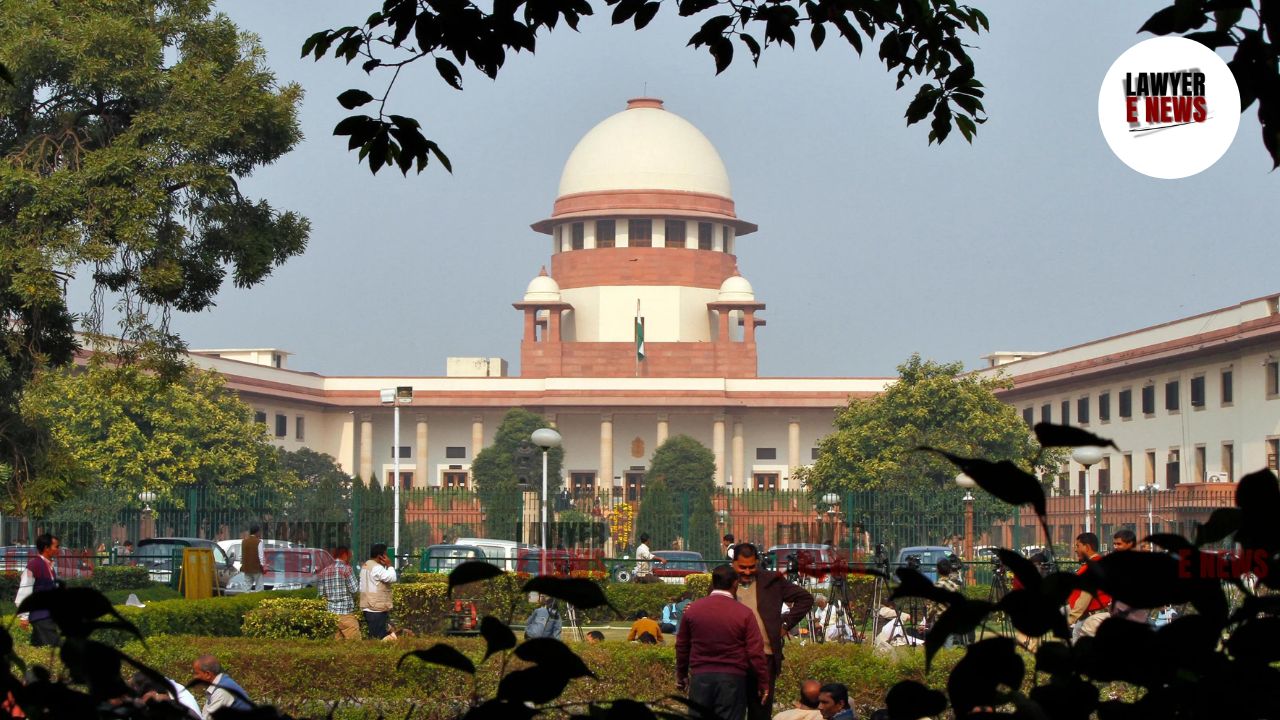-
by Admin
15 February 2026 5:35 AM



On September 19, 2024, the Supreme Court of India, led by Justice Pankaj Mithal and Justice R. Mahadevan, ruled in favor of the defendants-appellants in the case of Kamal Kishore Sehgal (D) through LRs & Ors. v. Murti Devi (Dead) through LRs. The court settled a long-standing dispute regarding the use of a common passage between two portions of land in Rajpur Road, Delhi, sold via separate sale deeds in 1974. The High Court’s earlier decision, which allowed the plaintiff-respondents access to an additional part of the passage, was overturned. The Supreme Court restored the Trial Court's judgment, limiting the right to passage to the area marked as X-Y.
The dispute arose when two portions of land (A & B), each measuring 699 square yards, were sold by Jaspal Singh through two separate sale deeds dated April 12, 1974. The plaintiff-respondents purchased portion A (front portion), while the defendants-appellants acquired portion B (back portion). As portion B lacked direct access to Battery Lane, the sale deed for portion A explicitly included a 15-feet wide common passage (X-Y) for use by both owners. However, the plaintiff-respondents later sought access to the entire passage, including portions Y-Z and Z-Z1, located within the defendants-appellants' property (portion B).
The Trial Court ruled in favor of the defendants-appellants, limiting the common passage to X-Y. However, the High Court overturned this decision, granting the plaintiff-respondents the right to use the entire passage from X-Z1.
The main legal question was whether the plaintiff-respondents had the right to use the entire passage (X-Y, Y-Z, Z-Z1) as a common passage, or if their right was limited to only X-Y, as stipulated in the sale deed. Central to the dispute were the provisions of the Indian Easements Act, 1882 and the Transfer of Property Act, 1882.
The plaintiff-respondents argued that the entire passage (X-Z1) should be accessible, claiming the alignment of Y-Z and Z-Z1 with X-Y suggested it was all part of a single, common passage. In contrast, the defendants-appellants maintained that their sale deed granted them exclusive ownership over portions Y-Z and Z-Z1, with no obligation to leave any part of the passage open for the plaintiff-respondents.
The Court held that the language in both sale deeds was clear and unambiguous, emphasizing the importance of a literal interpretation of contracts. The Court reiterated that:
"Where the language employed in the instrument is clear and unambiguous, the common literary meaning ought to be assigned in interpreting the same and one should not fall back on any other inference."
[Para 18]
The Court determined that the sale deed of the plaintiff-respondents explicitly limited their right of use to the 15-feet wide passage marked X-Y, and did not extend to Y-Z or Z-Z1, which lay within portion B owned by the defendants-appellants.
The Court found that the plaintiff-respondents' sale deed made no mention of a right to use any passage beyond X-Y. In contrast, the defendants-appellants' sale deed clearly stated that only the passage left by the plaintiff-respondents (X-Y) was for shared use.
"The defendants-appellants, purchasers of portion B, have no obligation to leave any passage in their portion for the use of the plaintiff-respondents."
[Para 22]
The Supreme Court found the High Court had erred by interpreting the entire passage (X-Z1) as common based on its alignment, without sufficient textual support in the sale deeds. The High Court’s reasoning conflicted with the explicit terms of the sale deeds.
"The first appellate Court completely misconstrued the two sale deeds and simply for the reason that the passage Y-Z and Z-Z1 were in alignment with the passage X-Y... This is something which is completely erroneous."
[Para 21]
The Supreme Court set aside the High Court’s judgment, restoring the Trial Court's decision. The Court ruled that the plaintiff-respondents' right of passage was restricted to X-Y as per the sale deed, and they had no legal right to use the passage portions Y-Z and Z-Z1.
"The judgment and order of the First Appellate Court dated 01.11.2011 cannot be sustained in law and is hereby set aside, and that of the court of first instance dated 22.02.2002 is restored."
[Para 24]
In conclusion, the Supreme Court of India reinforced the importance of adhering to the literal terms of a contract in property disputes, particularly where the language is clear and unambiguous. The Court restored the Trial Court's decision, ruling that the plaintiff-respondents had no right to use any portion of the passage beyond X-Y, reaffirming the exclusive ownership rights of the defendants-appellants over portions Y-Z and Z-Z1.
Date of Decision: September 19, 2024
Kamal Kishore Sehgal (D) through LRs & Ors. v. Murti Devi (Dead) through LRs
